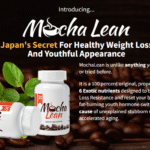In the ever-evolving world of health and nutrition, it’s easy to become confused by conflicting information. Many widely-held beliefs about nutrition are based on myths rather than scientific facts. In this article, we’ll debunk five common nutritional myths and provide you with the accurate information you need to make informed dietary choices. By addressing these nutritional myths, we aim to help you cut through the confusion and focus on evidence-based practices.
1. Nutritional Myth: Carbohydrates Are Bad for You
The Truth About Carbohydrates
One of the most pervasive nutritional myths is that carbohydrates are inherently unhealthy. This nutritional myth suggests that carbs are the main culprit behind weight gain and poor health. However, carbohydrates are a crucial part of a balanced diet. They serve as the body’s primary source of energy and play a key role in various bodily functions. The real issue arises from consuming too many refined and processed carbs, such as sugary snacks and white bread, rather than carbs themselves. This nutritional myth can lead to an unnecessary fear of carbs.
Choosing the Right Carbs
To counter this nutritional myth, focus on complex carbohydrates, which are found in whole grains, vegetables, legumes, and fruits. These foods provide essential nutrients and fiber, which aid digestion and help regulate blood sugar levels. By incorporating foods like quinoa, brown rice, and sweet potatoes into your diet, you can enjoy the benefits of carbohydrates without falling prey to the misconceptions perpetuated by nutritional myths. This approach helps you overcome the fears associated with the nutritional myth of carbohydrates being unhealthy.
2. Nutritional Myth: All Fats Are Unhealthy
Understanding Different Types of Fats
Another common nutritional myth is that all fats are unhealthy. This belief oversimplifies the role of fats in our diet and is a prime example of how nutritional myths can mislead. Fats are essential for many bodily functions, including hormone production and cell membrane integrity. The key is to distinguish between healthy fats and unhealthy fats. This nutritional myth fails to acknowledge that fats can be both beneficial and harmful.
Healthy vs. Unhealthy Fats
To debunk this nutritional myth, understand that healthy fats, such as those found in avocados, nuts, seeds, and olive oil, are beneficial for your heart and overall health. Conversely, trans fats and excessive saturated fats, commonly found in processed foods and fried items, should be minimized. By opting for unsaturated fats to support a balanced diet, you can counter the misconceptions of unhealthy fats and challenge the nutritional myth that all fats are detrimental.
3. Nutritional Myth: You Need to Avoid Gluten to Be Healthy
The Truth About Gluten
The belief that avoiding gluten is necessary for good health is a prevalent nutritional myth. This nutritional myth implies that gluten is harmful to everyone, which is not accurate. Gluten, a protein found in wheat, barley, and rye, is not a problem for most people. It is only necessary to avoid gluten if you have celiac disease or gluten sensitivity. This nutritional myth can lead to unnecessary dietary restrictions for those who do not need to avoid gluten.
Gluten-Free Isn’t Always Healthier
To address this nutritional myth, it’s important to know that gluten-free processed foods can still be high in sugars and unhealthy fats. Just because a product is labeled “gluten-free” doesn’t necessarily mean it’s healthier. Focus on a balanced diet that includes a variety of whole foods rather than relying on gluten-free alternatives that might be lacking in essential nutrients. This helps to debunk the nutritional myth that all gluten-free foods are healthier.
4. Nutritional Myth: Eating Late at Night Causes Weight Gain
The Real Issue with Eating Late
A common nutritional myth is that eating late at night causes weight gain. This belief is an oversimplification and a prime example of how nutritional myths can mislead us. Weight gain is more about the total number of calories consumed and the balance of nutrients throughout the day rather than the timing of meals. This nutritional myths incorrectly places undue emphasis on meal timing.
Managing Late-Night Eating
To counter this nutritional myth, if you find yourself hungry late at night, choose healthy snacks that are high in protein and fiber, such as Greek yogurt or a handful of nuts. Avoiding large, heavy meals right before bed can also help improve sleep quality and digestion. Pay attention to overall calorie intake and ensure you maintain a balanced diet throughout the day. By focusing on these factors, you can debunk the nutritional myths that eating late leads to weight gain.
5. Nutritional Myths: Supplements Can Replace a Healthy Diet
The Role of Supplements
A final nutritional myth is the belief that supplements can replace a healthy diet. While supplements can be beneficial in certain situations, such as filling gaps in nutrition, this nutritional myths suggests that they are a substitute for whole foods. This belief is misleading and overlooks the importance of a well-rounded diet.
Prioritizing Whole Foods
To address this nutritional myths, focus on incorporating a variety of fruits, vegetables, lean proteins, and whole grains into your diet. Supplements should be used to complement a healthy diet rather than as a primary source of nutrition. Prioritize whole foods for a well-rounded approach to health and challenge the nutritional myths that supplements can replace a balanced diet.
Conclusion
Navigating the world of nutrition can be challenging with so many nutritional myths and misconceptions. By debunking these five common nutritional myths, you can make more informed and balanced dietary choices. Remember that a healthy diet is about variety, balance, and moderation. Stay informed, and always prioritize whole foods and balanced nutrition to counter the false beliefs perpetuated by nutritional myths and achieve optimal health.










